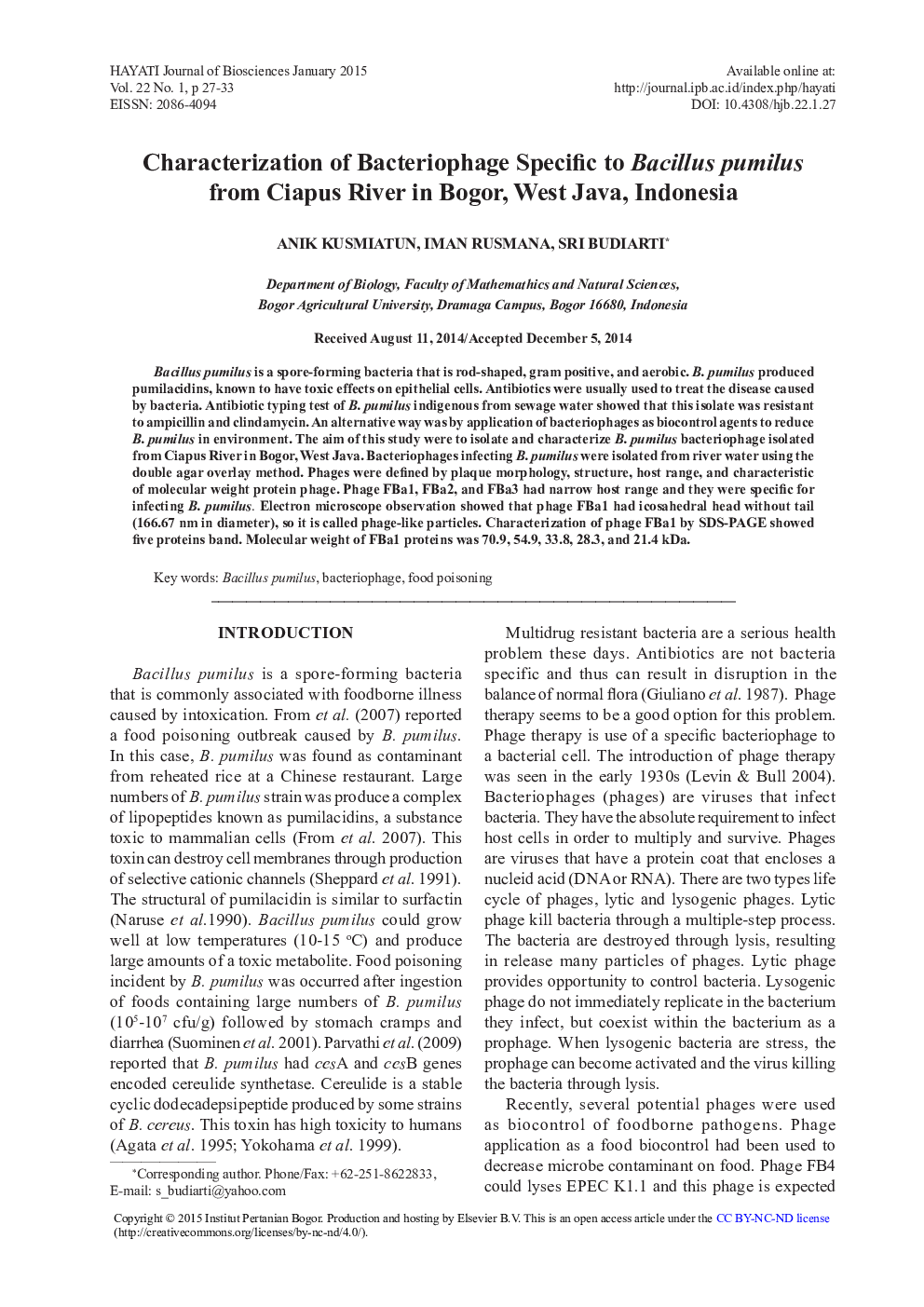| کد مقاله | کد نشریه | سال انتشار | مقاله انگلیسی | نسخه تمام متن |
|---|---|---|---|---|
| 2085847 | 1545474 | 2015 | 7 صفحه PDF | دانلود رایگان |

Bacillus pumilus is a spore-forming bacteria that is rod-shaped, gram positive, and aerobic. B. pumilus produced pumilacidins, known to have toxic effects on epithelial cells. Antibiotics were usually used to treat the disease caused by bacteria. Antibiotic typing test of B. pumilus indigenous from sewage water showed that this isolate was resistant to ampicillin and clindamycin. An alternative way was by application of bacteriophages as biocontrol agents to reduce B. pumilus in environment. The aim of this study were to isolate and characterize B. pumilus bacteriophage isolated from Ciapus River in Bogor, West Java. Bacteriophages infecting B. pumilus were isolated from river water using the double agar overlay method. Phages were defined by plaque morphology, structure, host range, and characteristic of molecular weight protein phage. Phage FBa1, FBa2, and FBa3 had narrow host range and they were specific for infecting B. pumilus. Electron microscope observation showed that phage FBa1 had icosahedral head without tail (166.67 nm in diameter), so it is called phage-like particles. Characterization of phage FBa1 by SDS-PAGE showed five proteins band. Molecular weight of FBa1 proteins was 70.9, 54.9, 33.8, 28.3, and 21.4 kDa.
Journal: HAYATI Journal of Biosciences - Volume 22, Issue 1, January 2015, Pages 27–33